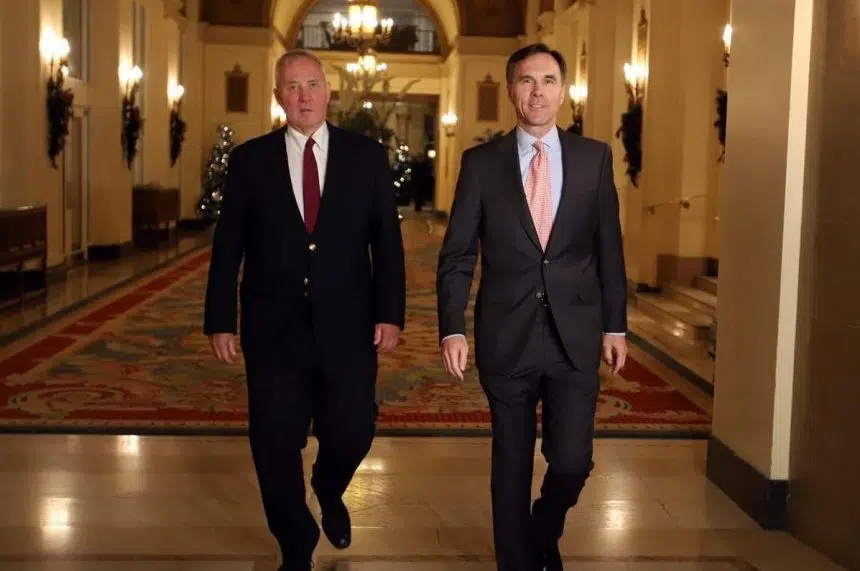OTTAWA — The federal government has agreed to give the provinces and territories a 75 per cent share of the tax revenues from the sale of legalized marijuana.
Finance Minister Bill Morneau announced the agreement today after a day-long meeting with his provincial and territorial counterparts.
Morneau says Ottawa will retain the remaining 25 per cent share to a maximum of $100 million a year, with any balance over and above that limit going to the provinces and territories.
The larger share, he added, will allow the provinces to “fairly deal with their costs and so they can work with municipalities,” which had been asking for at least a one-third portion of the revenue.
All 14 jurisdictions at the table agreed to the key principles reached at the meeting, Morneau said, calling it a “very good outcome.”
The original model put forward by the federal government proposed an even 50-50 split, a plan that was immediately shot down by the provinces, many of which wondered aloud what sort of costs Ottawa would be incurring to deserve such a share.
Earlier today, Ontario Finance Minister Charles Sousa said the federal Liberal government had successfully made the case that it, too, would have costs, but was showing flexibility on related revenue and cost-sharing questions.
After a meeting with his Atlantic counterparts in Halifax, Nova Scotia Premier Stephen McNeil let slip that a two-year deal had been reached, and that provinces would have the ability to include a markup above and beyond existing taxation levels.
Ottawa’s initial estimates suggest the total pot of tax revenue from marijuana sales could reach $1 billion per year.







